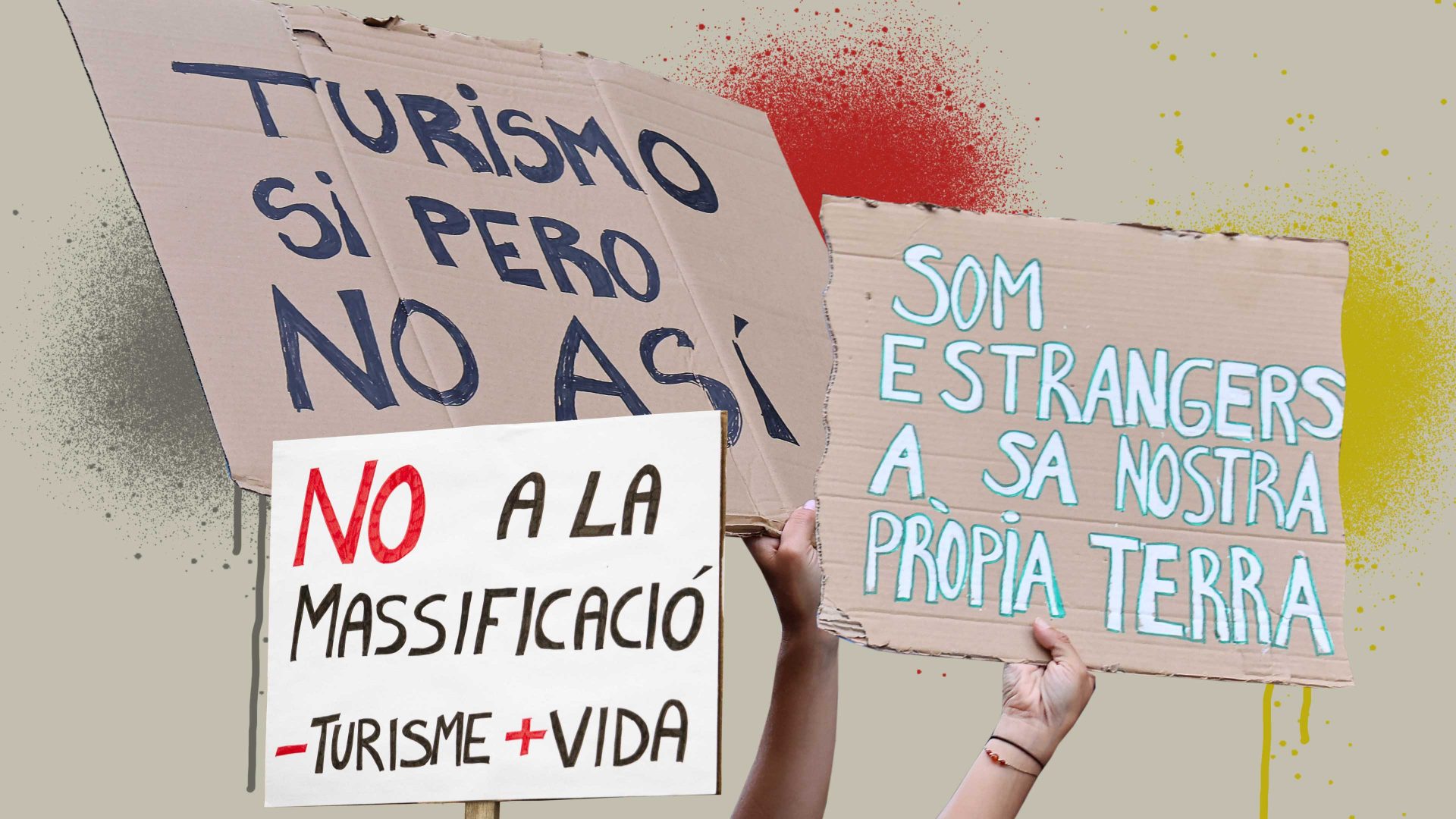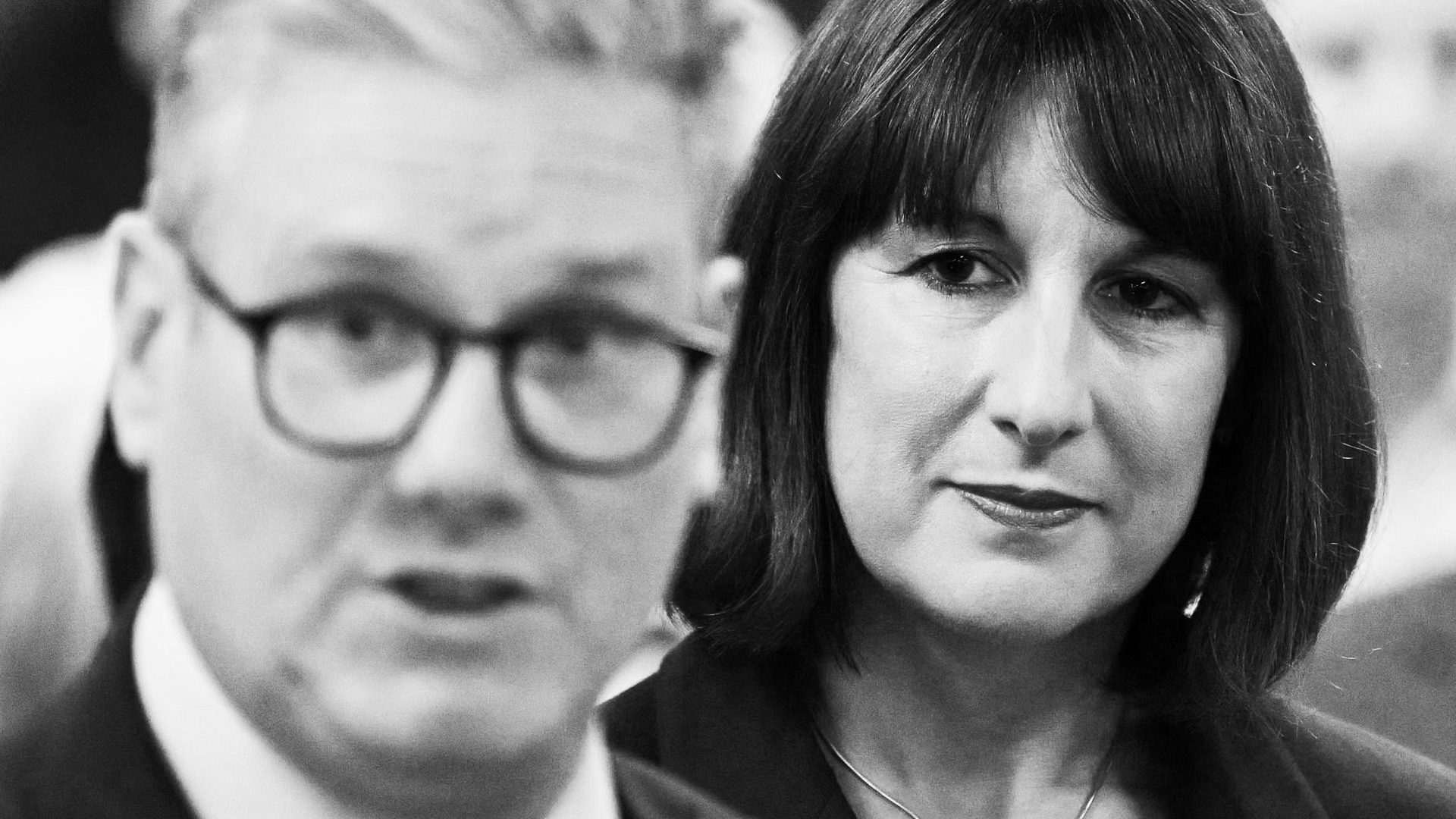The summer season is about to kick off in Mallorca, but there’s trouble in paradise. It started in the Canary Islands and then moved on to Palma: native islanders are turning against tourists. Not all natives, obviously, nor did they “raise hell” or “bite the hand that feeds them” (thanks, Daily Mail), but the simmering discontent isn’t limited to the 15,000 who took to the streets late last month, some dressed up as tourists in straw hats and Hawaiian shirts.
The core causes of concern are masificación (mass tourism) and skyrocketing house prices, echoed by protest posters in Mallorquín, a dialect of Catalan, saying: Mallorca no es ven (not for sale), Volem viure, no sobreviure (We want to live, not just survive) and Turismo sí, pero no así! (tourism yes, but not like this!).
During the march through Palma, a Spanish artist lampooned the German luxury realtor Engel & Völkers. Bizarrely, though, the Balearic Association of National and International Real Estate Companies released a press statement expressing “unreserved respect and solidarity” with the protests, highlighting that the rental market is nearly frozen and that it is “unacceptable to have to pay 18 times the annual wage for a decent flat.”
The hypocrisy here is that while giant tourist blocks and an overcrowded island do indeed spoil the high-end real estate business, the same estate agents are also making homes less affordable for locals: any flat or house renovated and sold as a secondary residence to well-off foreigners is potentially taking a primary residence away from the islanders.
There will surely be more social unrest in the years to come, when siblings realise that only one can eventually move into the parental home while the others have to cough up nearly a million euros to get their own place in certain areas. The cost of living in Mallorca is already high compared to mainland Spain, while the rate of homeownership is below the national average.
I’m currently staying in a secondary residence myself, so I also see the other side: substantial foreign investment into the local economy, an economy completely dominated by the tourism, hospitality and service sectors (around 75%). But here, too, foreigners are moving in as bar-owners, doctors and business owners.
The island’s class divide, however, isn’t only between locals and extranjeros, who hardly ever connect privately, but also between vacationers and workationers. The latter live on the island part-time and often look down on ze tourists. “There are too many Germans in Santanyí”, is a complaint I regularly hear from other Germans, and I’m always inclined to reply (but never do): “Spot on, dear. Why don’t you leave?”
There’s a divide among the Mallorcans, too. Most of them depend to some degree on the 20 million visitors that annually descend upon the island (population, 1.2 million).
After eight years of a leftist-green government, which limited the size of newly built pools, the right wingers are now in charge and vowed to make Mallorca more business friendly, which translates to: tourism friendly.
A far-right Vox politician, Manuela Cañadas, even said that Mallorcans, “cannot expect to go to the beach in July and August as we did years ago”.
In response, infuriated locals cried “occupy the beaches” (#ocupemlesnostresplatges) and roughly 30 activists staged a sit-in at Sa Ràpita last Saturday, simulating the attempt to fit all of them on one towel, in front of the beach-press-corps.
Reactions on social media ranged from enthusiastic support to critics posting: “Geeks of the year. There were more people at the bus stop.”
Interestingly, it is not just the political left that admits to the problem of overtourism. Marga Prohens, the 41-year-old Head of the Balearic Government from the conservative Partido Popular, recently stated that the current tourism model had reached “a limit” – a change of course to her party’s previous stance.
What this will mean in practice isn’t clear yet. In fact, restrictions on shop owners selling alcohol in Magaluf have just been eased – which won’t exactly help lower the numbers of British tourists (they are the second largest group after us Germans). Nor will they decrease after the €250m renovation of Palma airport. It is specifically designed to make passport controls run faster, which again aims at (more) tourism from the UK.
If you still dare to come to this beautiful spot, just brace yourself. This season, a third party could enter the towel wars between sunburnt Brits and your favourite Krauts: the Mallorquín locals, protest sign in hand, ready to defend their patch of sand.




